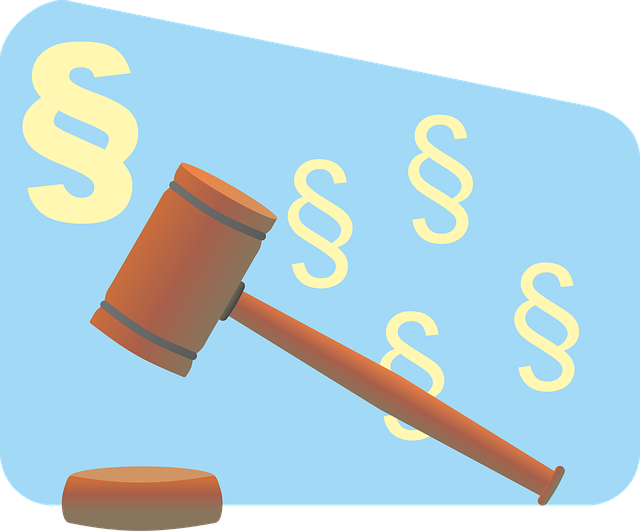The Legal Standards for Burden of Proof are essential in criminal trials, requiring prosecutors to prove guilt beyond a reasonable doubt. Defense attorneys play a vital role by scrutinizing evidence, challenging testimonies, and exposing procedural errors to protect the accused. Effective communication is key as they navigate complex legal jargon, building strong cases that meet these stringent standards, particularly in white-collar and economic crime defenses.
Criminal defense attorneys play a pivotal role in ensuring fairness within the criminal justice system. This article delves into critical aspects of criminal trials, focusing on the burden of proof and its impact on verdicts. We explore how defense attorneys evaluate evidence, employ legal strategies to challenge prosecution claims, and leverage presumptions to safeguard client rights. Effective communication is also scrutinized as a key element in building robust defense cases, adhering to stringent legal standards for burden of proof.
- Understanding Burden of Proof in Criminal Trials
- The Role of Defense Attorneys in Proof Evaluation
- Legal Strategies for Challenging Prosecution Evidence
- Presumptions and Their Impact on Verdicts
- Effective Communication: Building a Strong Defense Case
Understanding Burden of Proof in Criminal Trials

In criminal trials, the legal standard for burden of proof is a fundamental concept that determines the outcome of cases. The prosecution bears the responsibility to prove beyond a reasonable doubt that the defendant committed the alleged crime. This means they must present compelling evidence and arguments to convince the jury or judge that there is no other plausible explanation but the guilt of the accused. It’s not merely about presenting facts; it involves establishing a clear and convincing narrative that leaves no room for reasonable alternative interpretations, thereby ensuring fairness in the judicial process.
Understanding this legal standard is crucial for both prosecutors and criminal defense attorneys. A successful defense strategy often revolves around challenging the prosecution’s evidence, raising doubts, and presenting contradictory arguments. The ultimate goal may range from achieving a complete dismissal of all charges to avoiding indictment or winning challenging defense verdicts, ultimately protecting the rights and interests of the accused individual.
The Role of Defense Attorneys in Proof Evaluation

Defense attorneys play a pivotal role in evaluating proof, which is a critical aspect of criminal cases. Their primary task is to scrutinize the evidence presented by both the prosecution and their own clients, ensuring that it meets the legal standards for burden of proof. This involves a meticulous analysis of facts, witness testimonies, physical evidence, and any potential discrepancies or weaknesses in the case.
In the realm of white-collar defense, attorneys must possess a deep understanding of legal principles to challenge the prosecution’s case effectively. They assess whether the evidence is sufficient to prove their clients’ guilt beyond a reasonable doubt. By employing strategic tactics, they can expose flaws in the prosecution’s argument and advocate for their clients’ rights, ultimately aiming to deliver just outcomes in accordance with prevailing legal standards.
Legal Strategies for Challenging Prosecution Evidence

Criminal defense attorneys employ a myriad of legal strategies to challenge evidence presented by the prosecution. One key aspect is understanding and utilizing the appropriate legal standards for burden of proof. The prosecution must prove each element of a crime beyond a reasonable doubt, which means that any weakness in their evidence can lead to significant outcomes for the defendant. This includes scrutinizing the reliability of witness testimonies, examining forensic evidence for inconsistencies, and questioning the integrity of physical evidence collected during investigations.
Attorneys may also argue that evidence was obtained through illegal search or seizure practices, which could result in a complete dismissal of all charges. By carefully navigating all stages of the investigative and enforcement process, defense attorneys can protect their clients’ rights, whether they represent corporate or individual clients. These strategies require a deep understanding of legal principles and procedural rules to ensure the best possible outcome for the accused.
Presumptions and Their Impact on Verdicts

In criminal trials, presumptions play a pivotal role in shaping verdicts, especially regarding the Legal Standards for Burden of Proof. The burden of proof lies on the prosecution to establish guilt beyond a reasonable doubt. This standard, set by legal precedent, demands that each element of a crime be proven conclusively. For his clients, this means navigating a complex web where every detail counts; a misstep can lead to an indictment or even a harsher sentence.
Attorneys specializing in criminal defense employ various strategies to challenge these presumptions and ensure fairness for their respective business. By questioning evidence, presenting alternative theories, and highlighting procedural errors, they aim to avoid indictment or reduce charges. This meticulous approach is crucial, as it can significantly impact the outcome of a case, ultimately protecting the rights and interests of their clients.
Effective Communication: Building a Strong Defense Case

Effective communication is a cornerstone for criminal defense attorneys when building a strong case. It involves navigating complex legal jargon to ensure clients understand their rights and options, which can be crucial in the court room. A skilled attorney must articulate arguments that meet the stringent legal standards for burden of proof, presenting evidence in a clear, compelling manner to counter prosecution claims. This strategic approach is essential when defending against charges such as white-collar and economic crimes, where nuances in respective business practices often serve as key factors in determining guilt or innocence.
Attorneys with an unprecedented track record understand the importance of active listening and building rapport with clients. By fostering open communication, they can gather critical information that strengthens defenses while also providing reassurance to their clients during stressful times. This empathetic approach complements a rigorous understanding of legal principles, enabling attorneys to advocate effectively for their charges, ultimately shaping the outcome of their cases.
Criminal defense attorneys play a pivotal role in navigating complex legal standards for burden of proof, ensuring fair trials. By critically evaluating evidence, challenging presumptions, and employing strategic communication, they safeguard clients’ rights and protect against wrongful convictions. Understanding these principles is essential for both legal professionals and individuals facing criminal charges, underscoring the importance of robust defense strategies.






